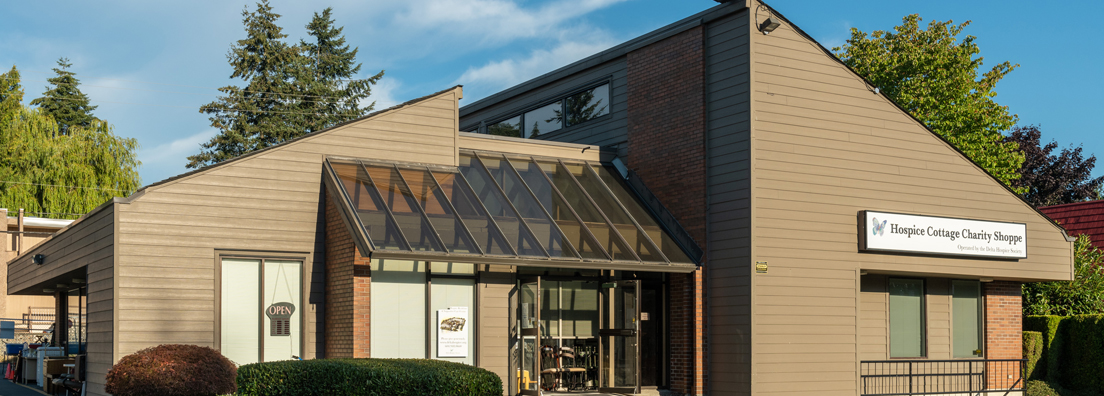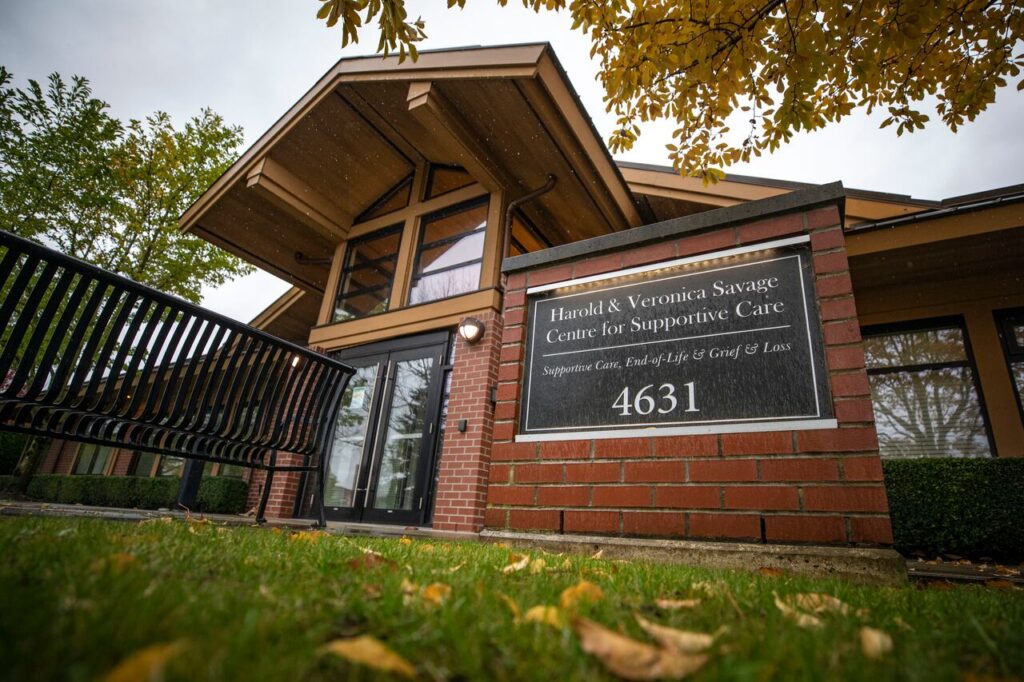Recent History
The Delta Hospice Society developed out of a need to support families living with the diagnosis of a life-threatening illness as well as those who are bereaved. The Society was incorporated in July 1991 in the province of British Columbia as a non-profit organization. The Society was registered with Canada Revenue Agency (CRA) as a registered charity with the ability to issue official tax receipts for eligible gifts to the Society.
When did “MAiD” become an issue for DHS?
On September 10, 2008, a 35-year, registered lease was granted by the Fraser Health Authority to Delta Hospice Society for 1.334 acres (58,123 square feet) of land located on the west side of 4600 block of Clarence Taylor Crescent adjacent to the Delta Hospital, in the Ladner neighborhood of Delta, British Columbia.
In 2009, after a multi-year capital campaign whereby DHS raised approximately $8 million dollars, it constructed 2 buildings on the registered lease land. The improvements included first, a one storey non-basement brick and wood frame building of 12,193 square feet, 10-bed hospice Palliative Care facility which was named the Irene Thomas Hospice. Second, a one storey non-basement brick and wood frame building having an area of 7,474 square feet, named the Harold and Veronica Savage Supportive Care Centre.
DHS operated the Hospice facility using funds from a Service Agreement contracted with the Fraser Health Authority. The Supportive Care Centre and DHS programing was operated from funds earned from its thrift store business and donations to the Delta Hospice Society. DHS operated their Hospice for 10 years until March, 2021.
Explanations to Fraser Health Authority that DHS is a Palliative Care organization and committed to a medical discipline that does nothing to hasten death fell on deaf ears. Mr. Norm Peters, Fraser Health Vice President, Regional Care Integration, who spear headed the loss of our contract and Lease, told me in a Meeting on December 5, 2019 that the push to force DHS to perform “MAiD” in our Hospice came “straight from the Minister”. At the time, that Minister of Health was NDP Adrian Dix.
Fraser Health Authority cancelled the Service Agreement with Delta Hospice Society on Feb 25, 2020, with 1-year written notice, to take effect on Feb 24, 2021. It was communicated to DHS the reason for termination of the Service Agreement was that although we allowed assessment for “MAiD” on-site at our Hospice, access to “MAiD” was not permitted and that was contrary to Fraser Health’s policy.
The cancelation of our Service Agreement by the FHA triggered a manufactured lease default on the land we occupied, with approximately 22 years left of the Lease Agreement.
On Feb 25, 2021, Delta Hospice Society was given notice to vacate the land by March 28, 2021, and instructed that the 2 buildings, Hospice and Supportive Care Centre that DHS had constructed and operated for 10 years, was to be taken over by Fraser Health Authority. DHS left all furniture and equipment in the Irene Thomas Hospice and took all the furniture out of the Supportive Care Centre.
On April 15,2021 the Irene Thomas Hospice, which still uses the name we gave it, was reopened under the control and operation of the Fraser Health Authority. The Hospice continues to operate with “MAiD” being carried out on the premises. No monies were paid to DHS by the Fraser Health Authority for the fully supplied and equipped Irene Thomas Hospice, nor were any monies ever paid to the Delta Hospice Society for the 2 buildings that were expropriated. The buildings were valued at $8,500,000 by an appraisal performed by Grover Elliot on Feb 17, 2021.
Use of the Harold and Veronica Savage Supportive Care Centre, which still uses the name we gave it, was given to a newly formed Hospice organization who actively fought against DHS’s position around “MAiD”. The new organization supports the “MAiD“ provision inside of the Irene Thomas Hospice.
There were no other Hospices in British Columbia operating as authentic Palliative Care facilities once FHA expropriated our buildings. The only ones allowed to continue to function, without supplying MAiD, were the ones who had a religious exemption. The religious exemption is what allows authentic, internationally recognized Palliative Care to continue to exist in British Columbia. If that exemption, via the Denominational Health Agreement, is taken away by a current court case -Palliative Care will be destroyed in B.C.
Join our Army of 10,000+ supporters
Stay in the loop.












